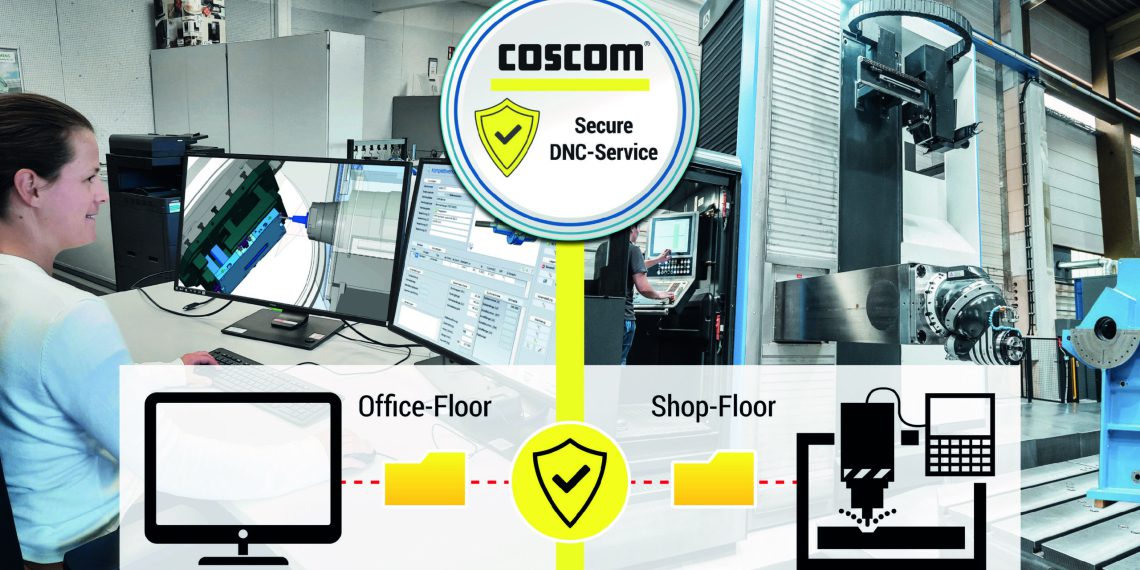The Internet of Things (IoT) megatrend has led to more and more “things” (read: machines) being networked together on the store floor as well. The problem, however, is that many of these production systems are virtually unprotected when connected to the corporate network or the Internet. The 2020 status report from the German Federal Office for Information Security (BSI) speaks a clear language on this: the number of new malware variants has increased by over three million compared to 2019. This is also an indicator that hackers have built up considerable criminal energy and are acting more decisively than ever (1).
IT security for all types of machine controls.
Such a threat is calling Coscom Computer GmbH to the scene. In the past, the company has worked intensively on the process-secure networking of CNC machines, also known as “DNC.”
“CNC machine controls are now integrated into TCP/IP networks like a standard PC with network cards. The machine control runs on Windows or Linux operating systems in the modern machines. However, there is no homogeneous versioning of the operating systems with current security updates as with standard PCs. This provides an enormous attack surface.”
- Christian Erlinger, Managing Director
If, for example, the machine controller has access to the Internet because the machine is serviced remotely by the machine manufacturer, this opens the door to hackers. Christian Erlinger explains why: “No virus scanners are installed on the controllers because they might have a negative impact on the real-time behavior of the controller. This would remove the supplier’s warranty obligation. Another danger point is the USB port on the machine, because the mobile data carriers could be bugged, allowing unauthorized access to the overall network.” The use of cloud computing for evaluation scenarios also poses dangers in terms of cyber security. However, the awareness of dangers from the network has grown considerably in the meantime, assures the managing director. In the meantime, an IT security officer from the manufacturing company is usually present during discussions about store floor networking.
Harmonization of different operating systems
The company has developed the “IT Security Service” software product for this purpose. It is a modern web service that completely and reliably separates the machine network from the office network. A firewall is inserted between the two, allowing both IT infrastructures to exchange data securely with each other. For example, CNC programs can be transmitted to the machining centers via enabled ports.
Christian Erlinger explains: “Our IT Security Service eliminates the security risk on the store floor! The company ensures that IT can communicate with the historically grown structures in the machine park without danger.” In addition, operating systems of the machine controls no longer have to be updated for security reasons. The web service compensates for incompatibilities between different operating system versions. Harmonization thus takes place at a high IT security level.
Implementing digitization holistically
The IT security service is also so valuable because not only can the store floor be networked absolutely securely, but the expansion of the company’s own digitization infrastructure can also be driven forward without hesitation. COSCOM has a great deal of experience as a store floor integrator. The innovative web service relieves the IT department of tasks related to secure networking on the store floor and supports the implementation of holistic digitization strategies that link the top and the store floor.

















